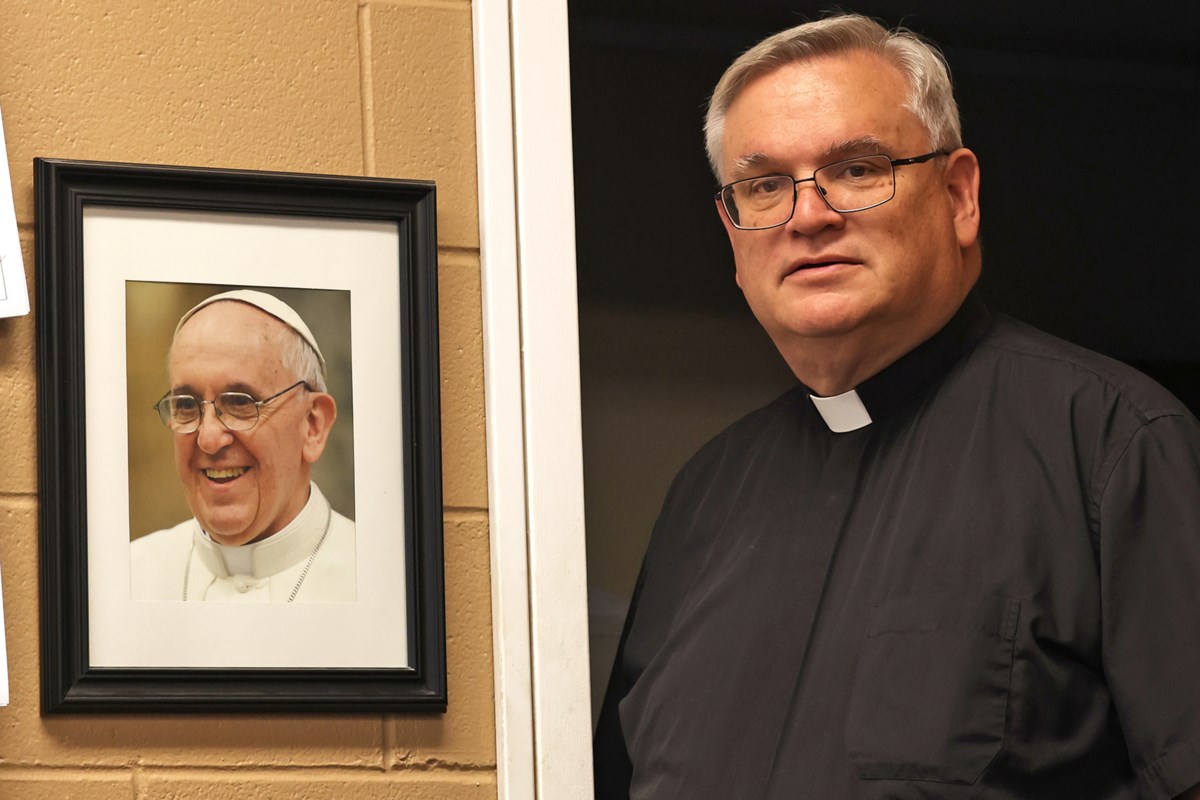For Unionism now is the time to confront its long-standing issues while there is still time…

Unless you’ve been living under a rock, it’s hard to ignore the growing conversation around Irish Unification. The topic now features regularly across mainstream platforms — from the BBC and print media, online forums to podcasts and social media, where debate is constant. Advocacy groups, particularly Ireland’s Future, host events throughout the year to keep the issue front and centre. For Unionism, watching this unfold can provoke emotions ranging from unease to outright exhaustion. But as momentum builds, should Unionism reconsider its approach? Ireland’s Future has spared no expense in promoting its vision of Irish Unity, hosting large-scale events in high-profile venues with speaker line-ups that could rival the cast of Ben-Hur. The message at these events is clear: momentum is building, unity is inevitable, and the narrative is tightly curated. This strategy has gained significant traction and influenced various media platforms and has helped shape the broader national conversation. Visually impressive and emotionally charged, these events often prioritise personality and soundbites over substantive policy discussion. Many speakers have called for planning for Irish Unity to begin, but surely this is something the group should be doing. A key element of Ireland’s Future’s approach is its repeated call for Unionists to engage in the debate. This has evolved into dedicated forum segments aimed specifically at Unionists — or more precisely, Protestants. This serves a calculated, two-pronged purpose: (1) to invite Unionist participation on the premise that the Union is already lost, and (2) to create the perception that Unionist support is bleeding. However, this tactic has not been without its missteps. Promotional material for one event promised insights from so-called “cultural Unionists”. But it was quickly discovered on social media that one such individual had a profile picture of themselves in a balaclava, waving an Irish tricolour, with a feed containing openly hostile views towards Unionists. Despite complaints from Unionists, Ireland’s Future refused to engage and remained silent. The individual was quietly removed from a keynote slot, but the incident raised questions about the group’s vetting process and the sincerity of its outreach. Similar concerns have surfaced about other participants — again, met with silence. This week, Professor Peter Shirlow, Director at the University of Liverpool’s Institute of Irish Studies, revealed that Ireland’s Future had blocked him on social media. The move surprised many, given his history of engaging respectfully with the group during public debates and online. His revelation prompted numerous Unionists to share similar experiences — many had been blocked not only by Ireland’s Future, but also by its prominent supporters. Following pressure, Ireland’s Future has not officially responded but has unblocked a considerable number of Unionist accounts, it’s a terrible look from a group seeking to engage with Unionists while simultaneously blocking them. Of course, anyone has the right to block others on social media, particularly in response to trolling or abuse. But in many of these cases, those blocked appeared to have challenged Ireland’s Future’s messaging in a reasoned and civil manner. This is not a very good optic for a group that claims to seek Unionist engagement. The irony hasn’t been lost on many within Unionism. There’s a growing belief that engagement is only welcome if it comes from those who “say the right things” undecided voices or those already leaning pro-Unity. This has, in turn, justified the wider Unionist decision to boycott what they perceive as predetermined conversations. Still, Unionism hasn’t been entirely ignoring the debate. A number of pop-up pro-Union discussion forums have emerged in recent months, the most prominent being Safeguarding the Union, fronted by former DUP Special Adviser Lee Reynolds and Professor Peter Shirlow. In many ways, this group is the antithesis of Ireland’s Future. Operating on a shoestring budget, its events lack the celebrity-laden guest lists and glossy venues like the 3Arena or SSE Odyssey. Instead, they are held in modest settings — often dusty Orange Halls. While Ireland’s Future is about building momentum, Safeguarding the Union is focused on restoring confidence and stemming what some may deem a bleeding of support. These events lean heavily on data and statistical analysis, promoting a narrative that, despite current challenges, support for the Union remains robust. There’s open recognition of internal issues within the Unionist parties, but also a forward-looking vision of what a better, more unified Unionism could become. Critics have argued that the group is too insular, pointing to the choice of Orange Halls — which some see as exclusionary — and smaller audience sizes (typically around 200 attendees), especially compared to the thousands who turn out for Ireland’s Future. Yet the initiative has had tangible success. Unionism has long struggled to speak to itself, and this group is beginning to foster those conversations. Attendees often report feeling more energised and optimistic about the Union after these events. More broadly, there’s a growing sense within Unionism that it’s important simply to be seen responding to the more prominent Irish Unity narrative. It is crucial for Unionism that these discussions continue — and that they receive support from the wider Unionist community. Particular effort must be made to engage those who identify as Unionist but remain outside the mainstream. Another key issue is the lack of female voices within Unionism — a long-standing problem that urgently needs addressing. Inevitably there will become a time when engaging outside of the Unionist bubble is necessary. The broader political landscape remains difficult. The DUP is still grappling with issues that have festered for years, and the party will likely feel constrained until the conclusion of Jeffrey Donaldson’s trial. Meanwhile, the UUP risks drifting into irrelevance. Mike Nesbitt has remained largely anonymous since taking leadership, and it’s clear that holding the Health portfolio while attempting to rebuild the party is an almost impossible task. If a border poll were called tomorrow (which is highly unlikely), neither of the main Unionist parties would be in a fit state to effectively campaign. Both have been in decline for over a decade, with little sign of meaningful recovery. As for the TUV, while it enjoys support from a vocal segment of Unionism, its hardline stance risks alienating the middle ground — a crucial constituency in any future referendum. Unionism needs to ask itself whether the current parties are truly best placed to defend and promote the Union. If the answer is no, then serious thinking needs to be done about what comes next. Unionism also appears bogged down by unwinnable battles — whether over the Irish language, Casement Park, or the Protocol. These issues continue to fester, with no clear roadmap for resolution. Meanwhile, the continued existence of active paramilitary elements damages credibility and contributes to the widespread perception that Unionism lacks vision, cohesion, and long-term strategy. To further complicate matters, recent reports — including from the Economic Research Group and the Department of the Taoiseach’s Shared Island Unit — highlight how Northern Ireland is lagging behind the Republic in key areas such as healthcare, infrastructure, and disposable income. In addition, concerns are growing about the lenient sentencing of individuals convicted of serious crimes — an issue Doug Beattie has repeatedly raised but has yet to be addressed at source. These are the issues upon which a border poll will be won or lost, and Unionism ignores them at its peril. Despite all of this, Irish Unity is not inevitable. It is certainly possible, but by no means assured. Tánaiste Micheál Martin recently stated that Irish Unity isn’t even on his agenda, with a focus instead on the concept of a “shared island.” Polling continues to show that support for the Union, despite the current challenges, still outpaces support for Unity — even among Catholics, whose support for the Union is significantly stronger than Protestant support for Unity. There are also issues within the Republic that are often glossed over, the housing crisis (although sneaking into Northern Ireland too), issues around immigration and a general disinterest in Northern Ireland. Their economy is also heavily reliant on business from the US, will they be negatively impacted by some of Trump’s policies? Groups like Ireland’s Future will keep pushing the momentum, but it’s clear that persuasion and real engagement are not their priorities. Their members often speak of the need to “start planning for constitutional change” — but what’s stopping them? This is a key reason why Unionism need not participate in such groups, there is no real influence there, it’s about creating momentum and influencing those who can call a border poll, why would Unionism accelerate this? I do feel that Unionism should listen to these conversations as some important points are raised that Unionism can address. Much has been made of the importance of the middle ground, often regarded as the referendum kingmakers. But this presents difficulties for them too. The Alliance Party has indicated it will take a position in the event of a referendum — a move that could create internal divisions and open the party up to criticism for (by all probabilities) with whichever outcome seems likely to win. This may prove a strategic misstep. A more pragmatic position would be to offer party members a free vote while maintaining organisational neutrality. As for Unionism — now is the time to confront its long-standing issues while there is still time. Unification may not be inevitable, but a referendum is. Be ready for it.



















